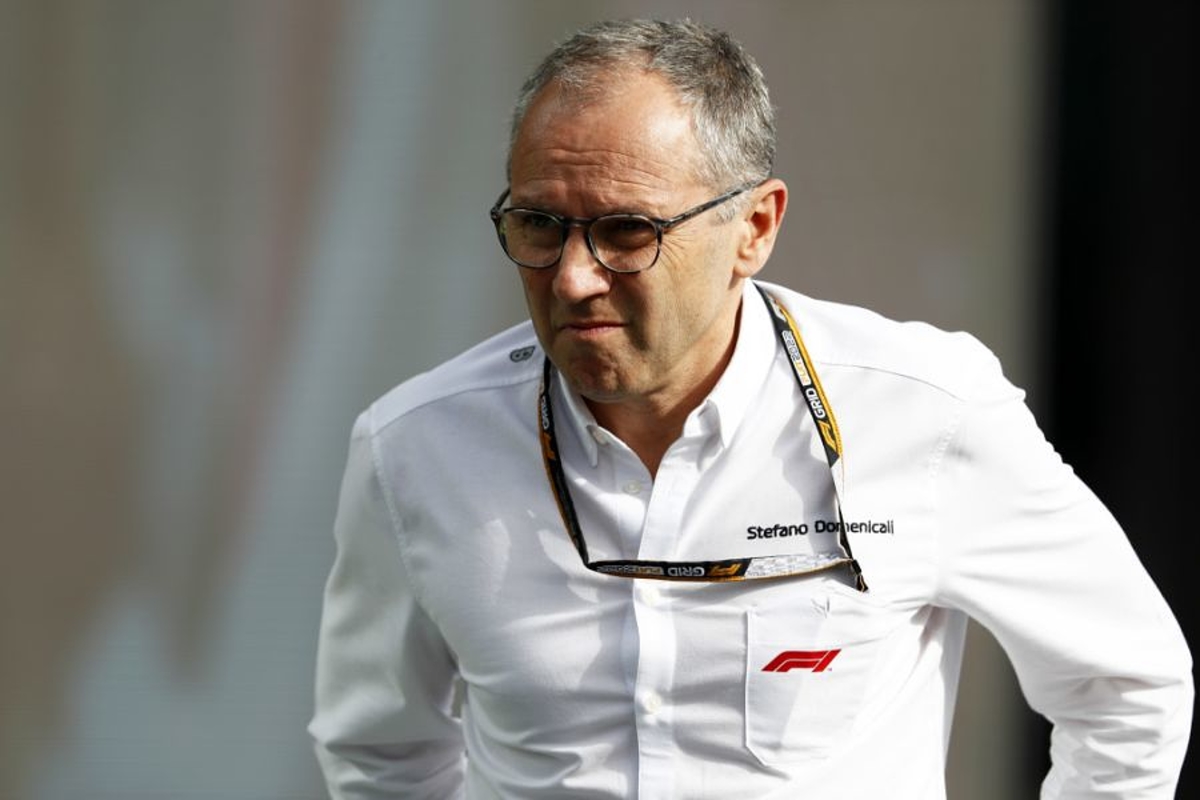F1 has provided a positive update on its progress with its sustainability and diversity and inclusion initiatives.
The sport set out to achieve net-zero carbon by the end of the decade whilst building a more diverse and inclusive sport for talent in 2019, with steps being taken in the time since to act upon its aims.
F1 CEO Stefano Domenicali said: “We are committed to making Formula 1 more sustainable and increasing diversity and opportunity across this incredible sport.
"We remain focused on these very important objectives and have continued to make strong progress in 2022.
"We have delivered important initiatives on our journey to be net-zero carbon by 2030, expanded our scholarship programme for under-represented groups, and announced the F1 Academy that will provide opportunities for young female drivers to begin their journeys to the highest levels of our sport.
"We are proud of what we are delivering, but we know we must continue to make progress and deliver positive lasting change for Formula 1.”
F1 outline changes to tackle sustainability
In the three years since announcing its plans, F1 has undergone a transition period to tackle its carbon footprint.
A switch to remote broadcast operations has reduced the number of personnel and the amount of freight travelling to each race.
Freight containers have been adapted to enable the use of 777F cargo planes, which emit at least 19 percent less carbon than previously-chartered 747F models.
F1 offices have transitioned to 100 percent renewable energy, with the FIA awarding the three-star sustainability management accreditation - the highest grade possible.
The British Grand Prix was awarded the Albert Certification for the second year running, which is handed out by BAFTA for productions that 'meet sustainable credentials'.
More can still be done, however, with the sport looking into the prospect of changing the calendar for the future that would group races geographically to the best of F1's ability, notwithstanding factors such as climate in regions at certain times of the season.
F1 has also engaged with promoters to promote positive change, the largest being a push for reducing single-use plastics at over 80 percent of events across the recent 22-race season.
The sport also continues its push for 100 percent sustainable fuel, which is set to be introduced for the 2026 power unit regulation changes, with the help of Saudi Arabian partner Aramco.
Diversity and inclusion
F1's push for inclusion took another step in November with the launch of the F1 Academy, an all-female category aimed at helping develop and prepare young drivers to progress through the 'career ladder' that consists of F2 and F3.
Teams from the two leading junior categories will run the five teams, with the inaugural season comprising seven events of three races each.
After Lewis Hamilton began to shine a light on the lack of diversity within motorsport, F1 announced that former CEO Chase Carey had personally provided $1million to fund a programme to give under-represented youth the chance to begin careers in F1 and engineering.
In the time since, 10 students across six universities in Britain and Italy have been granted an engineering scholarship, with the full cost of tuition being covered.
Two long-term apprenticeships have been awarded, with a focus on mechanical engineering, and six internships have been started with a mix of short and long-term placements.
As well as further initiatives at race events around the world to reflect inclusivity, F1 has made it mandatory that all staff takes part in diversity and inclusion training to ensure 'unconscious bias' plays no part in day-to-day operations.
Crucially, the mean gender pay gap has been reduced from +51.9 percent across a two-year period beginning in 2017 down to +19.1 percent in 2021.
F1 head of sustainability Ellen Jones said: "We’re now three years into our journey to net zero by 2030 and it’s fantastic to see the progress that’s been made already.
"The work that’s going on behind the scenes to bring this strategy to life is tireless and we are confident that we are building strong foundations for the future of our business and sport.
"Thank you to everyone across Formula 1, from our fans, teams, race promoters, and many more, for your efforts this year as we build a more sustainable and inclusive business."
Related






































 Grand Prix of Australia 2025
Grand Prix of Australia 2025  Grand Prix of China 2025
Grand Prix of China 2025  Grand Prix of Japan 2025
Grand Prix of Japan 2025  Grand Prix of Bahrain 2025
Grand Prix of Bahrain 2025  Saudi Arabian Grand Prix 2025
Saudi Arabian Grand Prix 2025  Grand Prix De Monaco 2025
Grand Prix De Monaco 2025  Gran Premio de España 2025
Gran Premio de España 2025  Grand Prix du Canada 2025
Grand Prix du Canada 2025  Grand Prix of Austria 2025
Grand Prix of Austria 2025  Grand Prix of Belgium 2025
Grand Prix of Belgium 2025  Grand Prix of Hungary 2025
Grand Prix of Hungary 2025  Grand Prix of Azerbaijan 2025
Grand Prix of Azerbaijan 2025  Grand Prix of Singapore 2025
Grand Prix of Singapore 2025  Gran Premio de la Ciudad de Mexico 2025
Gran Premio de la Ciudad de Mexico 2025  Grande Prêmio de São Paulo 2025
Grande Prêmio de São Paulo 2025  Qatar Grand Prix 2025
Qatar Grand Prix 2025  Grand Prix of Abu Dhabi 2025
Grand Prix of Abu Dhabi 2025 